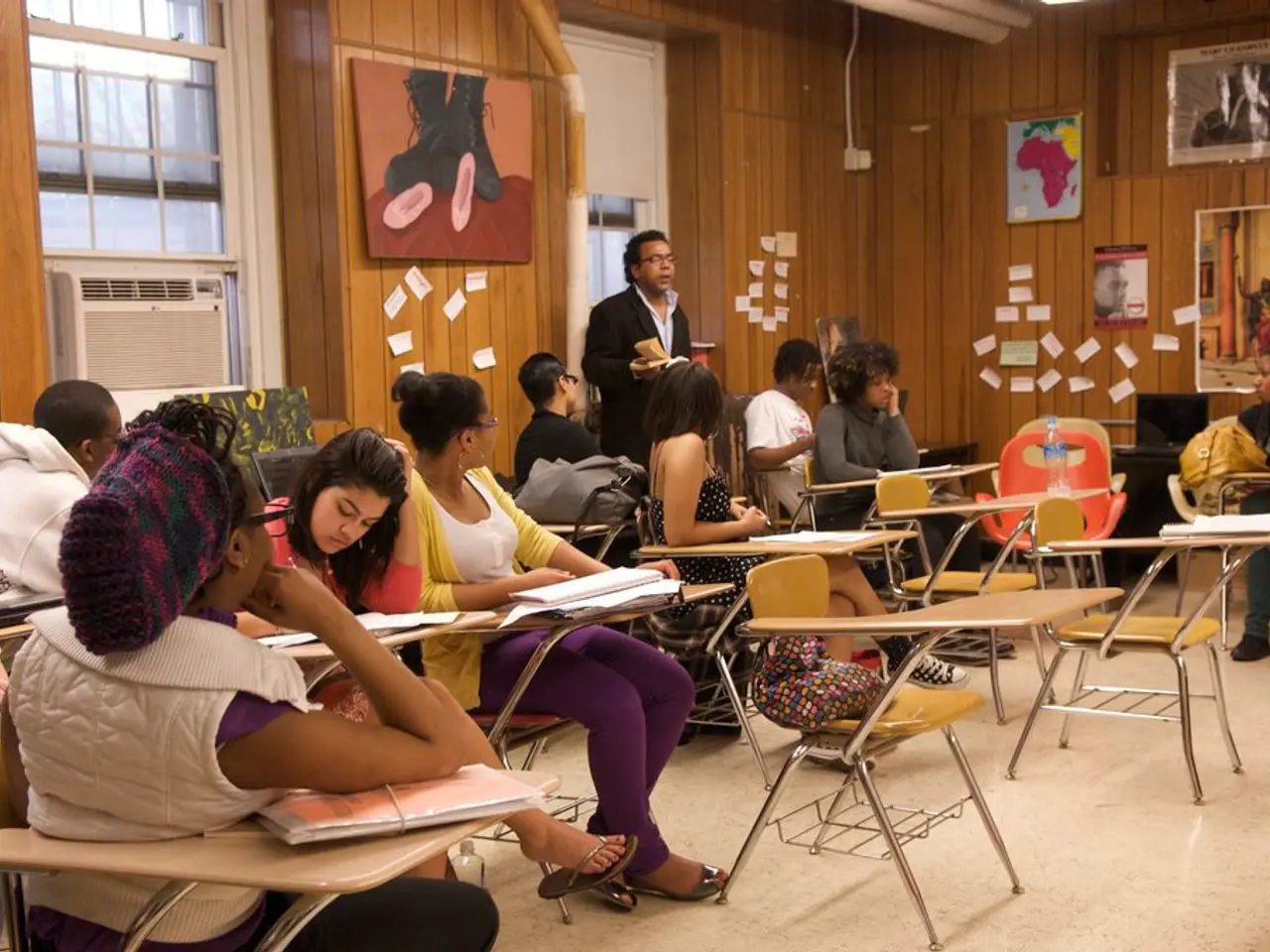Artificial Intelligence is equipping students for the oncoming times
In the ever-evolving landscape of education, the University of Wisconsin-Stout is leading the charge by incorporating the latest generative AI tools into its curriculum. This innovative approach is transforming the educational process, offering significant benefits for students while presenting unique challenges that must be addressed.
One of the most notable advantages is the immediate access to personalized assistance that AI provides. Whether it's explaining complex concepts, answering questions, or brainstorming ideas, AI serves as a valuable resource for self-directed learning, even beyond school hours.
AI also offers personalized tutoring, delivering tailored responses that cater to individual students' needs and learning levels. This adaptive approach allows students to progress at their own pace, whether they are struggling or advanced.
Moreover, AI supports language learning by offering opportunities for students to practice vocabulary, receive writing feedback, or converse in other languages, thereby improving fluency.
Fostering creativity and critical thinking is another area where AI proves to be a valuable asset. By collaborating on projects such as generating stories or design prototypes, AI encourages fresh ideas and enhances creative skills.
In addition, AI provides up-to-date content, integrating the latest developments in technology and science into lessons, ensuring students learn current information.
AI analytics also enable the monitoring of progress and early intervention, identifying learning gaps and predicting performance trends. This proactive approach allows for timely support to be provided.
Moreover, some AI tools include mood check-ins and wellness prompts to detect signs of stress or disengagement and suggest help, providing mental health support.
However, the integration of AI into education is not without its challenges. The high cost of AI technologies is a significant hurdle for educators, particularly in the face of potential equal access issues in the future. Ethical questions about the accessibility of AI tools have also emerged.
Over-reliance on AI may also lead to a diminished human interaction and creativity, reducing opportunities for active engagement, collaboration, and personal expression. Issues such as bias in AI outputs, misinformation, plagiarism, data privacy, and equitable access to technology pose ongoing challenges.
The teacher's role is also being redefined as AI assists in content creation and assessment. This shift requires new skills and oversight, with teachers now responsible for guiding, customizing, and validating AI-generated materials.
Potential unknown limitations in generative AI also demand caution and continuous evaluation.
In summary, generative AI offers powerful tools to enhance student learning through personalization, creativity, current content, and inclusivity. However, its use must be carefully balanced to preserve human elements of education and address ethical, integrity, and access concerns.
A business informatics professor at an unspecified educational institution has integrated AI into a course, using Microsoft 365 Copilot. The course author's goal was to provide students with the opportunity to use AI and teach them to critically evaluate its application in their studies and future work. The author intends to continue integrating AI into the educational process, recognising its importance in today's digitally-driven workforce.
Artificial intelligence (AI) significantly boosts personalized learning by offering immediate support, whether clarifying complex concepts, answering questions, brainstorming ideas, or providing tailored tutoring based on individual students' needs and learning levels, thereby facilitating self-directed education. Furthermore, AI advancements in technology and science make it an essential resource for staying updated and improving education in the realm of learning and education-and-self-development.




